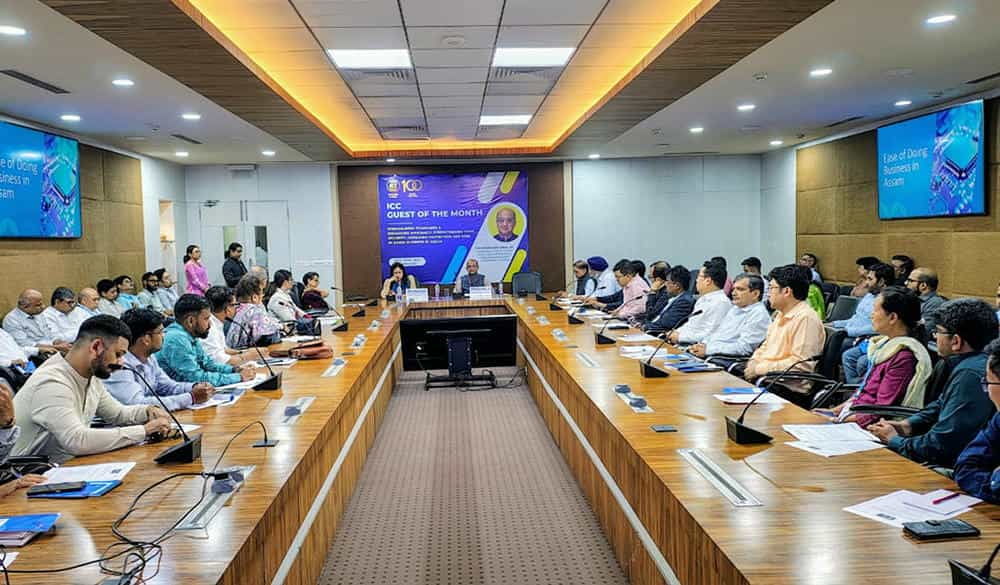Assam’s growth playbook: IAS officer Biswaranjan Samal outlines roadmap for standards, business reforms, and consumer welfare at ICC meet

The Indian Chamber of Commerce (ICC) hosted senior IAS officer Biswaranjan Samal, Additional Chief Secretary of the Department of Food, Public Distribution & Consumer Affairs, Assam, as its “guest of the month” in an event centred on improving standards, governance, and business facilitation in the state.
Held at the NEDFi Conference Hall, the session, themed “Streamlining Standards and Enhancing Efficiency: Strengthening Food Security, Consumer Protection, and Ease of Doing Business in Assam,” attracted stakeholders from across sectors. It opened with a welcome by Atreyee Borooah Thekedath, Co-Chair of the ICC Assam State Council, followed by Samal’s keynote address.
A 1992 batch IAS officer of the Assam-Meghalaya cadre, Samal has been instrumental in shaping state policies around food security, consumer affairs, and economic development. In his address, he outlined a multi-pronged strategy that combines regulatory overhaul, quality assurance, and streamlined public services.
Samal spotlighted the work of the Bureau of Indian Standards (BIS), detailing its nationwide network for product testing, certification, and standard-setting across 16 sectors. He emphasized outreach programs such as ‘I-Care’ and 10,000+ Standards Clubs in schools to instil a culture of quality from an early age.
BIS tested over 2.15 lakh samples in FY 2023–24, a sharp 18% increase from the previous year, reflecting a stronger push for quality control. New mandates—including the Machinery and Electrical Equipment Safety Order (2024) and the Electrical Appliances Quality Control Order (2024)—are set to be enforced in 2025, further bolstering consumer and industrial safety.
Samal highlighted Assam’s strides in improving the Ease of Doing Business (EoDB). The Assam EoDB Act, 2016, and the Single Window Clearance System now offer 270+ services across 23 departments, with a 98% application disposal rate. The system has improved administrative transparency and drastically cut red tape.
Recent policy additions, including the Aerospace & Defence Manufacturing Policy (2025), Poultry Commercialization Policy (2024), and Electronics & Semiconductor Policy (2023), aim to attract targeted investments. Assam’s strong performance in BRAP rankings and its Reducing Compliance Burden (RCB) efforts—digitization, service automation, and decriminalization of minor infractions—have made it easier to start and run businesses.
Samal emphasized the role of the Assam Right to Public Services Act (amended in 2019 and 2024) in ensuring efficient service delivery. Digital approvals for services like Labour Registration, Trade Licenses, and Legal Metrology have cut delays and improved transparency.
He also announced that the government has allocated Rs 500 crore for upgrading industrial infrastructure, especially along strategic highway corridors, to boost connectivity and logistics. The deployment of dedicated relationship managers is another step toward facilitating investment and fast-tracking project execution.
In his concluding remarks, Samal called for continued alignment between regulatory standards and administrative reforms to drive sustainable growth. He described Assam as a state on the move, where government departments and institutions like BIS are working hand-in-hand to create a competitive, investor-friendly environment.
The session ended with an engaging Q&A and a formal vote of thanks by ICC representatives, leaving attendees with a clearer understanding of Assam’s evolving economic strategy.

Leave a Reply